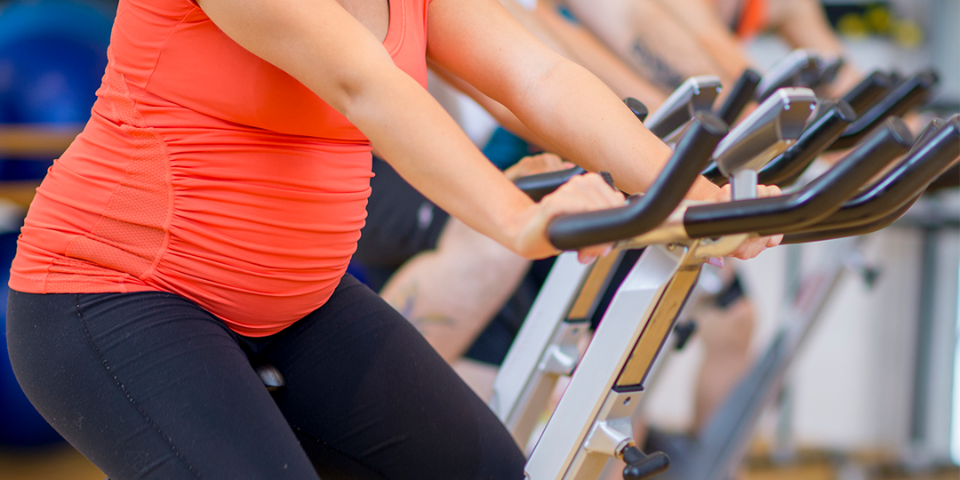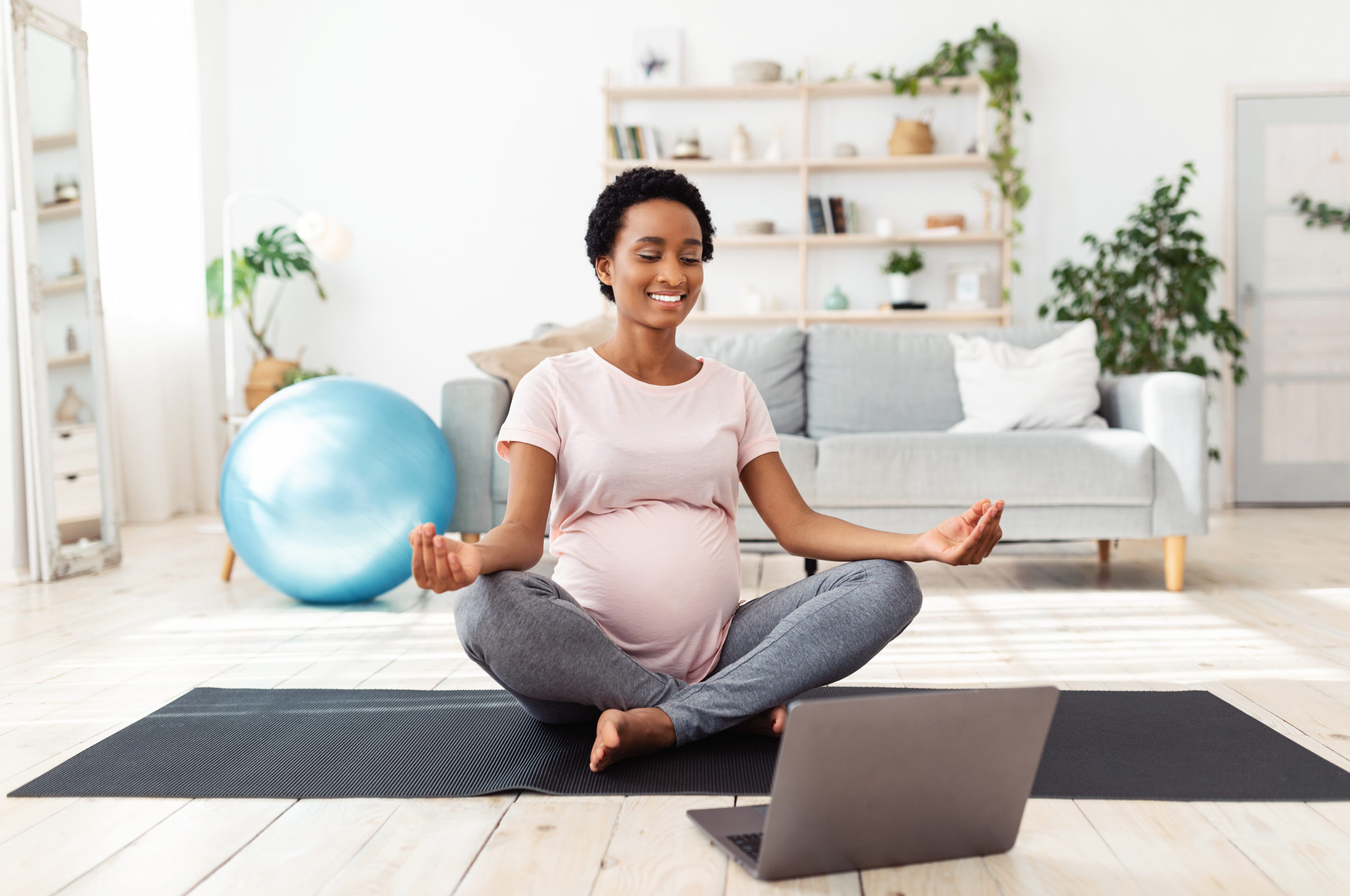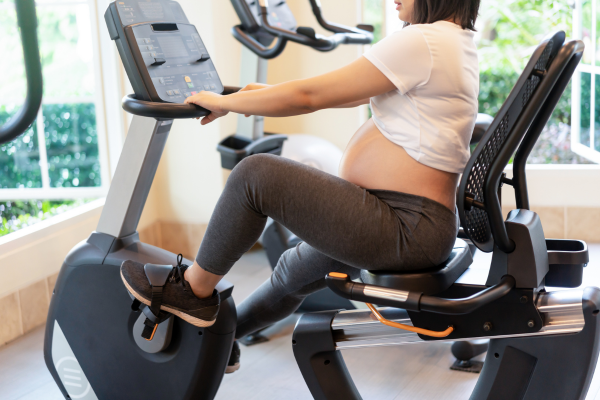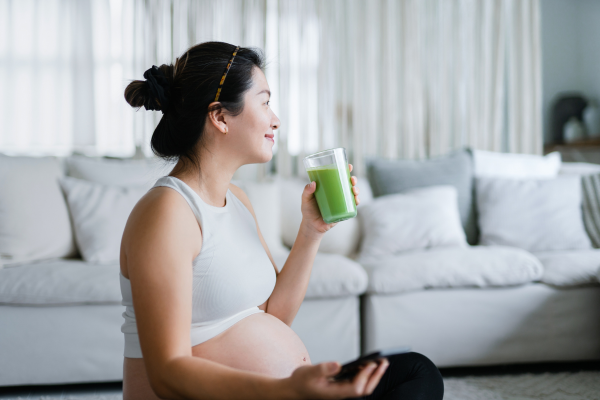If you’re concerned about the safety of your little one, you might have some questions around cycling while pregnant. The good news is that it’s safe to ride, though it’s always important to get the go-ahead from your doctor first.
Previously, pregnant women were told to take it easy — and based on some medical conditions, that may still be the best advice for some.
But growing awareness and research on the benefits of exercise during pregnancy have flipped the script.
Studies have found that regular exercise may help control blood pressure — a significant concern during pregnancy — and can shorten the duration of labor and improve the health of your baby.
The American College of Obstetricians and Gynecologists (ACOG) recommends getting at least 150 minutes of moderate-intensity aerobic activity throughout the week.
Getting on your BODi Bike can help you dial up to that intensity while minimizing the impact on your joints — especially as your pregnancy progresses and your weight changes.
Research backs the benefits of indoor cycling as well. One study found that pregnant women who rode on stationary bikes regularly showed more stabilized blood sugar, improved circulation, higher energy, and were better prepared for labor.
Are there ways to make riding safer and more comfortable during pregnancy? Absolutely, says Melanie Melillo, CPT, as long as you adjust your workouts in a way that keeps you protected.
Here are some top tips to consider.
1. Listen to Your Body
“Because indoor cycling is low impact, it’s great cardio for pregnancy. But as pregnancy progresses, sitting on the bike may not be comfortable,” says Melillo.
For example, she stopped when she was seven months pregnant because she had to pee the minute she sat on the bike — a sensation any woman in her third trimester likely knows all too well.
She adds that the general rule is that you should pay attention to what your body is telling you and monitor how you feel.
There may come a point, like with Melillo, where riding isn’t as comfortable. Still, it’s also possible that you can keep going right up to your delivery date — it all depends on what’s happening with your body specifically.
That also means making sure to keep track of your rate of perceived exertion (RPE). Although it can be fun to challenge yourself to some degree, your body already works harder to accommodate the changes associated with pregnancy.
Consider staying at a comfortable pace where you’re able to talk throughout, rather than getting out of breath.
2. Stay Indoors
Melillo says one of the benefits of indoor cycling compared to being outdoors on a traditional bike is the center-of-gravity factor.
This will be a more significant issue as pregnancy progresses, which means you have to be more cautious about activities that raise your risk of falling.
“For outdoor cycling, safety is a major concern, and center of gravity would be a big part of that,” she notes.
However, since indoor cycling doesn’t have the type of directional shifts and uneven terrain found in outdoor cycling, it’s much less of an issue.
3. Adjust Over Time
“As pregnancy progresses, staying comfortable while riding gets more challenging,” says Melillo, adding that even minor adjustments can be helpful, like raising the handlebars to make room for your growing belly and making sure to pee before you ride.
The BODi Bike features adjustable handlebars that move not only up and down but also forward and backward, helping you find the perfect position to accommodate your baby bump.
Another big tweak: Lighten up the resistance. Melillo says a lighter resistance can help your heart rate and blood pressure stay in a more comfortable range.
4. Stay Nourished and Hydrated
Even when you’re not pregnant, higher levels of activity often change your nutritional needs. When you’re expecting, that’s even more pronounced.
That’s why it’s helpful to discuss the issue with your doctor, and to focus on foods that can keep you going strong, like lean protein, whole grains, leafy greens, and healthy fats.
Another critical strategy is staying hydrated, adds Melillo. The benefit with indoor cycling is that you don’t have to carry water, she says, since you can keep it right next to you or on the bike — just don’t forget to drink regularly.
Keep in mind, too, that your water requirements increase throughout the pregnancy, according to research.
Although this will make you pee more often (sorry!), it helps prevent dehydration, which can have profound effects on maternal and fetal health, like keeping your blood pressure controlled.



